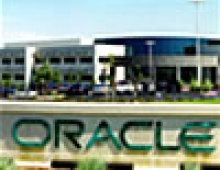
Sun Publishes Solaris Source Code
Sun Microsystems will today publish the source code for its Solaris operating system, as the network computer maker hopes the free software will drive sales of its servers and computer services.
Source code is the underlying software blueprint of an operating system, which runs a
computer and allows it to operate software programs. Sun's move makes good on a
pledge that Jonathan Schwartz, Sun's COO, made in June 2004 at a Sun show in
Shanghai.
Sun, which has suffered longer than rivals IBM, HP and Dell since the dot-com and telecommunications busts in early 2001, said the source code for Solaris, networking and system libraries and commands will be free, available on its Web site today.
By making the underlying code to Solaris freely available to software developers and the market at large, Sun aims to broaden the total available market for Sun's computer servers and computer services.
"The more people who run Unix and Solaris and open Solaris, the larger the opportunity is to sell the hardware, infrastructure and services necessary to put it into deployment," Schwartz said in a telephone interview.
"Open source doesn't mean no revenue, it means no barriers to [growing] revenue," he added.
Solaris is one of the major versions of the Unix operating system used in heavy-duty computing environments, such as financial services, air traffic control, and other transaction-laden computer processes.
Solaris competes against the Windows operating system from Microsoft, Business Machines Corporation's version of Unix called AIX and HP's Unix variant called HP-UX. It also competes against Linux, a freely available operating system based on Unix that can be modified and improved by a large community of developers.
In February, Sun began offering Solaris 10, the latest version of its operating system, as a free download on its Web site for those who registered and could use it for commercial or non-commercial use.
Solaris runs on both servers that use Sun's Sparc microprocessors and those that use Advanced Micro Devices' Opteron processors, which are part of a class of processors that are Intel-compatible and called x86.
In recent quarters, Sun has moved more to a model of offering bundled packages of its hardware, software and computer services on a pay-per-use basis to kick-start revenue, which has stagnated in the last 12 months after declining for the better part of the previous three years.
"This is the first mile of the marathon and we've been getting in shape for three years," Schwartz said. "We're just getting started."
Sun, which has suffered longer than rivals IBM, HP and Dell since the dot-com and telecommunications busts in early 2001, said the source code for Solaris, networking and system libraries and commands will be free, available on its Web site today.
By making the underlying code to Solaris freely available to software developers and the market at large, Sun aims to broaden the total available market for Sun's computer servers and computer services.
"The more people who run Unix and Solaris and open Solaris, the larger the opportunity is to sell the hardware, infrastructure and services necessary to put it into deployment," Schwartz said in a telephone interview.
"Open source doesn't mean no revenue, it means no barriers to [growing] revenue," he added.
Solaris is one of the major versions of the Unix operating system used in heavy-duty computing environments, such as financial services, air traffic control, and other transaction-laden computer processes.
Solaris competes against the Windows operating system from Microsoft, Business Machines Corporation's version of Unix called AIX and HP's Unix variant called HP-UX. It also competes against Linux, a freely available operating system based on Unix that can be modified and improved by a large community of developers.
In February, Sun began offering Solaris 10, the latest version of its operating system, as a free download on its Web site for those who registered and could use it for commercial or non-commercial use.
Solaris runs on both servers that use Sun's Sparc microprocessors and those that use Advanced Micro Devices' Opteron processors, which are part of a class of processors that are Intel-compatible and called x86.
In recent quarters, Sun has moved more to a model of offering bundled packages of its hardware, software and computer services on a pay-per-use basis to kick-start revenue, which has stagnated in the last 12 months after declining for the better part of the previous three years.
"This is the first mile of the marathon and we've been getting in shape for three years," Schwartz said. "We're just getting started."

















